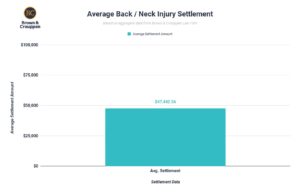Definition
At its most basic, standing is the right of a party to challenge the conduct of another party in court. Standing is not about the actual issues of the case. Instead, it is about the parties to the lawsuit and where they “stand” in relation towards each other. Courts treat standing as an “antecedent” to a lawsuit. In other words, a party must prove they have standing before the court will consider the merits of the case.
Although the definition of standing varies among different jurisdictions, most courts look at some or all of the following elements before determining whether a party has standing in a case:
- A legally cognizable interest. This means that the plaintiff must show an interest that is recognized by the courts or by statute.
- An injury-in-fact: The plaintiff must have a real or a threatened injury. This doesn’t have to mean a bodily injury. It can also mean an infringement of a concrete and actual protected interest. (property rights, civil rights, etc.)
- Causation: The injury must be caused by the named defendant, not a third-party who acted independently.
- Redressability: A plaintiff must show that a favorable court decision will likely redress the injury. Mere speculation is not enough.
Standing In A Personal Injury Case
A personal injury claim is centered around the bodily harm that a person suffers because of another party’s negligence. To determine whether a you have standing to sue, a personal injury lawyer needs to know:
- What is your legally cognizable interest? This may be as simple as just asking whether you were in the accident. If a minor child or dependent was in the accident, a parent or legal guardian has a legally cognizable interest in pursuing a claim on their behalf. Similarly, the representative of an estate may have a legally cognizable interest in trying to recover the medical bills for an injured party who has since passed away.
- Were you injured? Do you need medical treatment? Will you be able to show the extent of your injuries through medical records and bills?
At risk of stating the obvious, there can be no personal injury claim without an injury. For example, if another driver dings your bumper and scratches some paint you were not otherwise hurt, you have a property damage claim, but not a personal injury claim.
- Did you name the proper defendant in the lawsuit? Part of standing is that you must sue the proper party. If you were rear-ended by a driver who was texting on their phone, you want to sue the driver because that is the person whose negligence caused your injury. However, the manufacturer of the driver’s phone would not be a proper defendant.
- Will a favorable court decision redress your injury? In a personal injury claim, the court can order the defendant to pay your damages, such as your medical bills, lost wages, and pain and suffering. The court cannot, however, suspend the defendant’s driver’s license or order them to jail as part of a personal injury claim. Those actions can only be brought by the state or local government in venues like traffic or criminal court.


Were you injured in an accident due to someone else’s negligence? Get legal help from the most effective injury law firm in the Midwest.
Conclusion
Although standing in a personal injury lawsuit is usually clear-cut, it can get quite complicated in other practice areas. If you ever have any questions about your own legal rights, speak with an experienced attorney.








